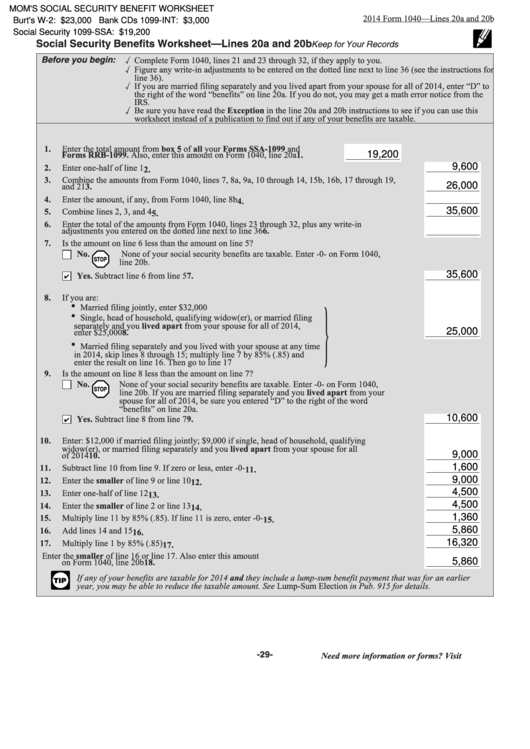When to File Paperwork for Social Security: Key Dates

Navigating the world of Social Security benefits can be a daunting task. With myriad dates, rules, and requirements, it's crucial to understand when to file the necessary paperwork to ensure you maximize your benefits. Here's a comprehensive guide to help you through the process.
Why Timing Matters in Social Security Applications

When you decide to apply for Social Security can significantly influence your benefit amount. Knowing the right timing can help you:
- Optimize your benefit amount: Early or late retirement can alter your monthly benefits.
- Avoid penalties: Missing filing deadlines can result in lost benefits.
- Stay informed: Ensure you know when you can apply and what documentation you need.
Understanding Social Security Key Dates

Full Retirement Age (FRA)

Your Full Retirement Age (FRA) is a crucial element in your Social Security planning. This is the age when you can receive your full, unreduced benefits:
- 66 for individuals born between 1943 and 1954
- Gradually increasing to 67 for those born in 1960 or later
📘 Note: If you apply before your FRA, your benefits will be reduced by up to 30%.
Early Retirement

You have the option to start receiving benefits as early as:
- 62 years old
- But remember, your benefits will be reduced for each month before your FRA
Delayed Retirement Credits

Choosing to delay retirement can boost your benefits:
- After FRA, for each month you postpone your claim, you’ll earn Delayed Retirement Credits
- Credits will increase your monthly benefit until you reach 70
Key Filing Dates for Social Security

Timing your application is critical. Here’s when to file:
When to File for Retirement Benefits

- If filing at FRA: File in the month you turn your FRA.
- If filing before FRA: You can file up to four months before the desired start date.
- If filing after FRA: The later the better, as benefits increase until age 70.
When to File for Disability Benefits

When it comes to Social Security Disability Insurance (SSDI), you should file as soon as you:
- Have a medical condition expected to last for a year or more or result in death
- Are unable to work or expect to be out of work for at least 12 months
🚨 Note: Disability benefits are not retroactive beyond the date of application.
When to File for Medicare

Medicare enrollment is closely linked with Social Security:
- Initial Enrollment Period (IEP): Starts 3 months before and ends 3 months after the month you turn 65.
- General Enrollment Period (GEP): If you missed the IEP, file from January 1 to March 31 annually.
When to File for Spousal or Survivor Benefits

If you’re claiming benefits based on your spouse’s record, consider these dates:
- Spousal Benefits: Apply anytime after your spouse claims or within 6 months of turning your FRA if your spouse has already claimed.
- Survivor Benefits: You can claim widow(er)’s benefits at age 60, or at 50 if disabled, or anytime after your deceased spouse’s FRA.
Tools and Resources for Filing

Utilizing the right tools can streamline your application process:
- Online Services: Use the Social Security Administration’s (SSA) online portal to apply for benefits, check your status, or estimate your benefits.
- My Social Security Account: Create an account for easier management of your benefits.
- Phone and In-Person Assistance: SSA field offices or the toll-free number provide personalized support.
Tips for a Smooth Application Process

To ensure your application goes smoothly, consider the following:
- Be Organized: Gather all relevant documents like birth certificates, tax returns, and medical records if applying for disability.
- Accuracy Matters: Ensure all information is correct to avoid delays or denials.
- Stay on Top of Deadlines: Know the critical dates and act promptly to avoid penalties.
- Seek Help if Needed: Don’t hesitate to reach out to SSA representatives or advisors.
Understanding when to file your Social Security paperwork is just as important as knowing how to file. By keeping these key dates and guidelines in mind, you can optimize your benefits and navigate the system with confidence. Remember, timing is everything, and with the right information, you can secure the retirement, disability, or other benefits you're entitled to. Plan ahead, stay informed, and ensure your application process is as smooth and efficient as possible.
What happens if I miss the Social Security application deadline?

+
If you miss the application deadline, you might delay receiving benefits. You won’t be able to collect retroactive benefits beyond your application date for disability, and your retirement benefits might be reduced if filed early or delayed for delayed retirement credits.
Can I apply for Social Security benefits if I’m still working?

+
Yes, you can apply for Social Security benefits while still working. However, if you’re under your FRA, earnings above a certain limit could reduce your benefits until you reach your FRA.
How long does it take to process a Social Security application?

+
The processing time for a Social Security application varies but typically takes 3 to 6 months for retirement or spousal benefits. For disability claims, the process can take 3 to 5 months or longer due to medical evaluations.
Does my spouse need to file for Social Security for me to get spousal benefits?
+No, your spouse does not need to file for their Social Security benefits for you to receive spousal benefits. You can claim your spousal benefits even if your spouse is still working or hasn’t filed for benefits, provided they meet the age and work history requirements.
Can I file for Social Security benefits online?
+Yes, you can file for many types of Social Security benefits online through the SSA’s official website. This includes retirement, disability, Medicare, and survivors benefits.



